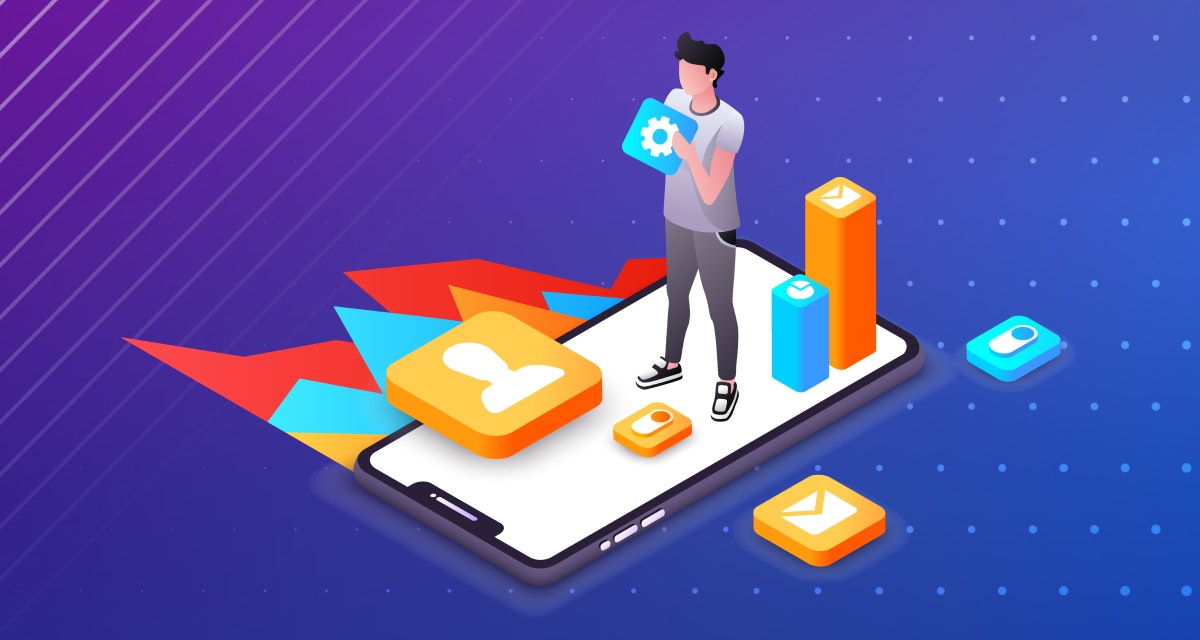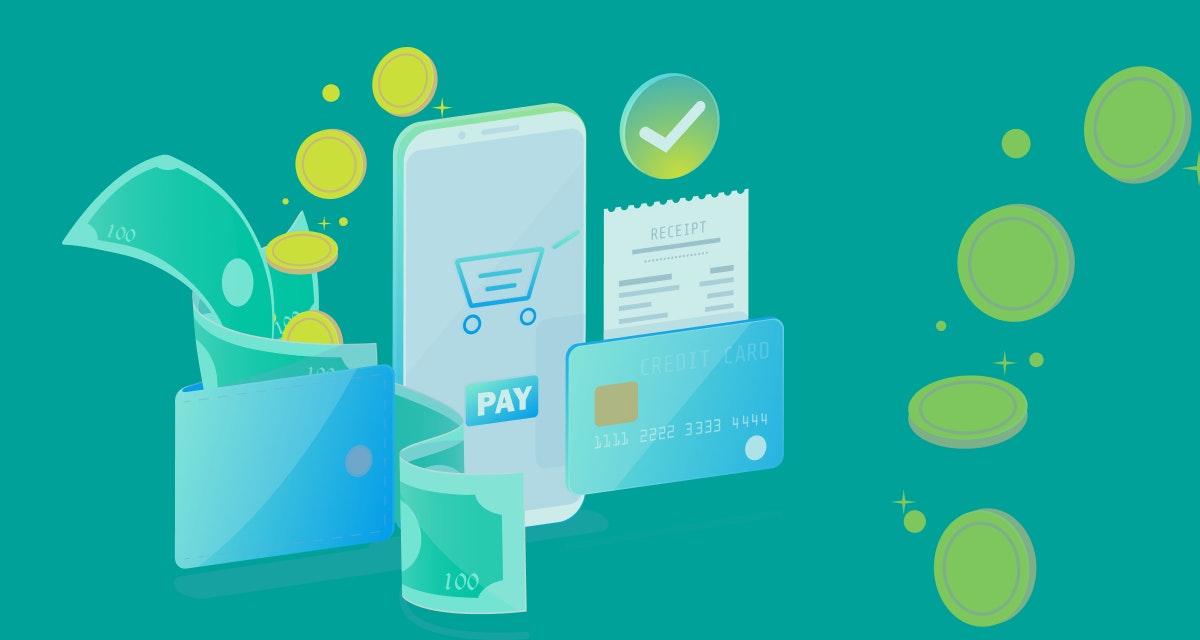It does not matter in which industry your business operates, having an intuitive and scalable app can take it to the next level.
Since today's consumers perform half of the tasks using mobile apps — whether it is booking flights, shopping for groceries, or purchasing electronic gadgets — it makes sense for you to build a robust business app.
However, mobile app development can be challenging if you do not use the right platform. That is where Firebase — Google's open-source mobile platform — enters the picture.
What is Firebase?
It is a Backend as a Service platform that offers developers a wide range of tools for delivering high-end app development services. In Firebase app development, you do not need to write APIs or manage servers. Firebase is your API, server, and your datastore — generically written so that you can modify them to suit your app requirements.
Firebase's flexibility and versatility have led to a rise in its user base. In 2014, it was acquired by Google Cloud Platform, and it is now their flagship offering for app development.
Eight reasons to use Firebase for app development
Using this platform to build, release, monitor, and market-dynamic apps could be a game-changer. We share eight reasons why you should opt for Firebase for app development:
1. Real-time database storage
The cloud-hosted NoSQL database offered by the Firebase database helps you store and synchronize data between the clients in real-time. This enables developers to access data from any device easily. It comes with SDKs for popular platforms such as iOS and web apps.
Besides,Firebase Android app development frees the developers from depending on the backend to build apps.
2. Smooth integration with Google Analytics
User data becomes much more accessible once you integrate your Firebase app with Google Analytics. You can track down your active users, study their app usage and browsing patterns, and know whether they are using smartphones, tablets, or laptops to access your app.
You can export your mobile app data to BigQuery through Google Analytics. Seriously, if you want to keep an eye on how your app performs, you must always study analytics. Firebase apps are built for numbers!
3. Facilitation of crash reporting
Bugs have the power to break your user interface and crash the entire app. In fact, many apps observe a high churn rate due to bugs that tend to slow the app navigation speed and make several features unusable.
Since consumers have a low attention span and would shift to another app quickly if this continues, this hampers the company's brand reputation, leading to a decline in the app's rating at different reviewing platforms.
That is not a problem with Firebase as it offers remarkable crash reporting functionalities that would help you locate and fix bugs promptly. You need to clean the app thoroughly in the development phase before rolling out any updates.
4. Secure web hosting
With Firebase Hosting, you can create and manage a single webpage, mobile landing pages, interactive web pages fast and easily. You can deliver content rapidly, without worrying about delivery. You would also automatically get a free SSN certificate for your custom domain. Developers can also deploy the web app as well as static content at CDN.
5. Seamless authentication
There is a need for additional security when you facilitate login features for your app users. With Firebase Authentication's support, the sign-in process becomes much simpler and secure.
It provides an identity solution for emails, passwords, and social apps such as Twitter, Facebook, and Instagram. The Firebase UI is flexible and easy-to-use, and it does not compromise the users' data security.
6. Accessibility of machine learning
Firebase equips developers with a Machine learning kit, which is available for Android and iOS. Every developer, regardless of their degree of expertise, can use it.
The kit includes APIs for some useful mobile functionalities such as optical character recognition, barcode scanning, face recognition, and image labeling. Developers can choose between on-device and Cloud APIs according to app requirements.
7. Push capabilities
You can grab the attention of the app users through push messaging. The technology is useful for sharing company news, announcing a new product range, and communicating limited-period discount deals.
Firebase gives you this capability for free. There is no coding required, and you can send the app messages to a particular demographic at a specific time. Also, you can AB test different push notifications to analyze their effectiveness before making the actual launch.
8. Detailed documentation, thriving community
Since developers widely use Firebase, one can access a big pool of resources helpful in app development using Firebase. You will find up-to-date blogs, news, and tutorials about the platform on the community page. You can also connect with developers possessing different expertise through various channels such as Slack, Github, and Google Groups.
If you are sold on the idea of using the Google mobile app development platform, let us dive deep into understanding the steps that will help you create a Firebase app:
A step-by-step guide to the Firebase app development process
1. Start a Firebase project
This is the first step in the process and a relatively easy one. Simply follow the steps:
- Open the Firebase Console .
- Log in with your Google account.
- Click "New Project.
- Follow the instructions and fill in the required information in the form.
- Your project will initiate in a few seconds.
- Go to the homepage and click on the option to inject Firebase into your project.
- Save config JSON object for it will be required further in the process.
2. Add Firebase to your project
This one is easy; simply:
- Type in your terminal: "$ npm install Firebase --save"
- Add dependency in your JavaScript file: “var Firebase = require("Firebase")”
- Put the Firebase snippet in your code with the appropriate credentials you saved in the previous step.
3. Sign up a user
You can write a basic authorization system at this point. Once that is done, make an endpoint for users to sign-up on the application in the future. You can do so by adding a new Auth component to your project where you store authorization and authentication endpoints.
Here is a method to do that:
Firebase.auth().createUserWithEmailAndPassword(email, password).catch(function(error) { // Handle Errors here. var errorCode = error.code; var errorMessage = error.message; // ... });
This would enable you to create users based on email ID and password authentication. The only thing you need is to catch user credentials from the sign-up form and send them over to your server at the exact endpoint where you have placed the snippet above.
Things such as maintaining users, changing passwords, and authenticating users are relatively simple to apply to Firebase's built-in methods.
4. Store the data
Hosting an application on Firebase becomes easy when all your data is safely stored on a secure platform's cloud servers. In fact, that is one of the top priorities of Firebase:
- You can start storing your data by adding the following dependency to the app codebase: require("Firebase/firestore");
- Once you have added the dependency, initialize a Firestore Class Object: require("Firebase/firestore");
- Use the following method to simply store data in Firebase:
db.collection("users").add({ first: "Michał", second: "Bednarz", born: 1995 })
Even if your database does not contain collection "users," Firebase will create it automatically or add the data to an existing collection. Developers do not need to worry as Firestore, Firebase's newest database for mobile app development, is equipped with all types of queries such as "where," "limit," and "order." You can fetch the stored data the way you want to.
Best practices for using Firebase
Now that you are well aware of how to create an app with Firebase, here are some bonus tips that would work as a cherry on top during the development process:
- Create an additional layer of authentication by beefing up security rules in your database. This would ensure only your app can read and write the data.
- Add validation rules to your database so that you can write data with required fields and appropriate security rules.
- Enable login with Facebook/Twitter/Google/GitHub for easy sign-ups and to save user-based recommendations with the data.
- When a user is making a recommendation on the app, allow them to create their unique username and display it along with their recommendation.
Summing it up
There is nothing better than hosting the application on Firebase for you will be able to develop an app with a smoother interface and gain access to a strong community support along the way. So if you are not comfortable building an app on your own, you can always rely on an Android app development company . Firebase is safe, fast, and scalable. It will take only four simple steps for developers to create an app with Firebase. You will be equipped with efficient toolkits for app creation as per your needs, and they will also guide on the cost to develop an app. What do you think?





